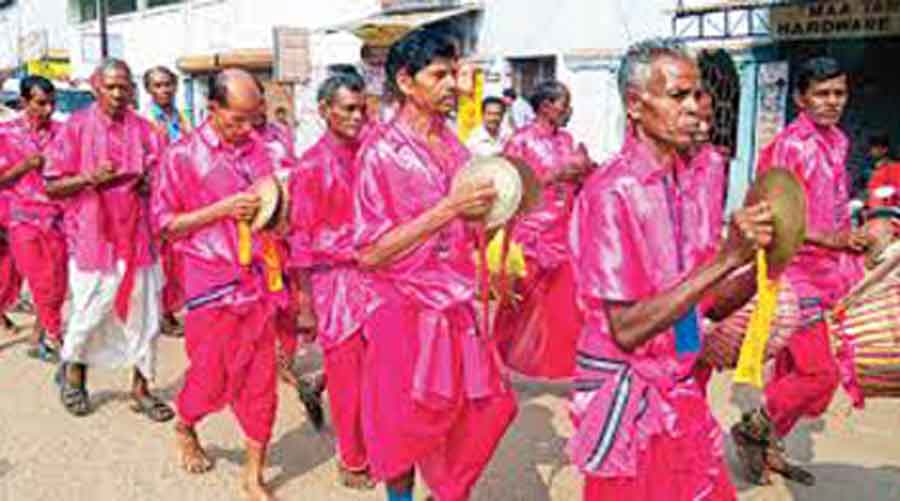The Odisha government has urged people to be cautious during the festive season with the state still reporting over 600 positive Covid cases daily.
Special relief commissioner (SRC) Pradeep Jena on Friday called upon people to celebrate Nuakhai, the biggest festival of western Odisha associated with harvesting, by following Covid-appropriate behaviour.
Jena asked people not to crowd temples during the festive period as this could lead to a spurt in cases. “Odisha is reporting 600-1,000 new Covid-19 infections daily. All need to be cautious as the second wave is yet to be over,” he added.
During this most important agrarian festival of the state, “nabanna” or rice from the newly-harvested paddy crop is offered to the local deity before people eat it in different forms.
Jena also said that the restrictions for the festive season announced on August 9 will remain in force. “Odisha will continue to celebrate festivals in a low-key manner in view of the pandemic. The 4-ft cap on idol height at Puja pandal remains,” he said.
Amid protests by puja committees over restrictions on the height of the idols for Durga Puja, the state government on September 8 had said that a decision on the issue would be taken in two days.
Later, chief secretary Suresh Chandra Mohapatra had met a delegation of the puja committees of Cuttack at the Lok Seva Bhavan here in the presence of Jena. The government continues to insist on puja committees not installing idols more than 4 feet high.
On the other hand, the state government has made all possible preparations to tackle the possible third wave of the pandemic, which according to experts, is likely to affect children the most. While special paediatric care wards have been set up in hospitals, child specialists have been imparted special training to deal with Covid-19 affected children.
Odisha was the first state of the country to set up special Covid hospitals when the first wave of the pandemic hit India in March last year. The state government, which took preventive measures in advance, had established dedicated hospitals to deal with Covid cases. The private sector, too, was involved in the initiative in a big way. The state was able to minimise the adverse effects of the pandemic mainly because of its efforts for the upgradation of health infrastructure.
“We are trying to ensure that our good work does not go in vain because of the carelessness of people,” said a senior health official.











